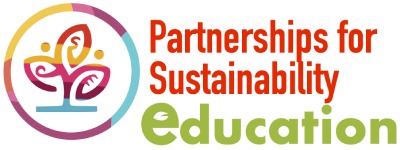Global Summit 2020
Leading Schools to Embrace Sustainability Education
What schools teach or do not teach the present generation of learners will determine how successful or unsuccessful these children and youth are in maneuvering through their future. Students definitely need to gain a comprehensive understanding of the causes and consequences of climate change and develop their skills and attitude so that they can make informed decisions and take appropriate actions amidst this climate crisis.
A reframing of the whole system of education is needed to ensure that climate change, sustainability principles, disaster risk reduction, biodiversity, poverty reduction, sustainable consumption, and other relevant issues are integrated across school curricula at all levels in all schools. Clearly, this has serious implications for the existing curriculum, pedagogical practices, and teaching strategies. We cannot overemphasize the crucial role education leaders play in this necessary transition.
UNESCO’s research on successful climate actions by schools around the world affirms the importance of school leadership in transforming teachers, students, and staff as climate-aware leaders themselves. According to their study, schools will most likely be successful in their climate action projects if they possess the following: (1) knowledgeable and committed school principal; (2) well-trained teachers; (3) access to external experts; (4) dedicated facilitators to manage the process and; (5) supporting materials and teaching resources. As can be gleaned from this study, key to the success of any school initiative on climate change is a committed education leader who has the influence to make all the other factors abovementioned materialize and work together.
Indeed, leaders of educational institutions have the influence to create a more ethical, sustainable, climate-resilient school community that promotes justice and sustainability for people and the planet.

